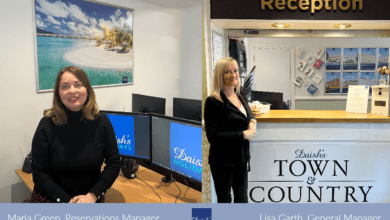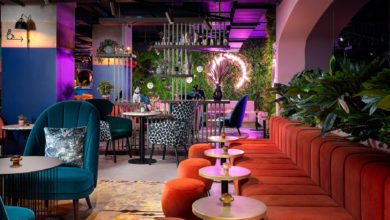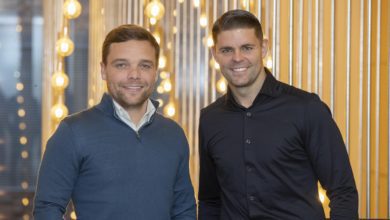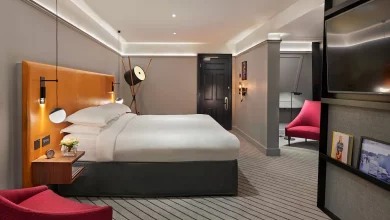In conversation with the founder of a&o Hostels
Oliver Winter tells us how domestic getaways are showing no signs of slowing down, how he aims to reach an ambitious ‘climate neutral by 2025’ goal, and how a&o has appealed to Gen-Z travellers
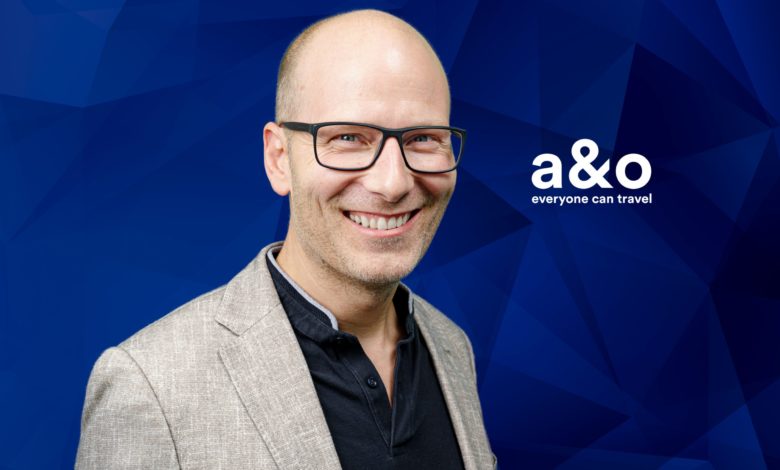
How did you get the idea to start a hostel brand?
I travelled around the world for six or seven months by myself after finishing school and before starting my studies. In this time, I came in contact with the hostel concept mainly in New Zealand and Australia, and that was in 1996-97.
I started my studies while I had the idea to bring hostels to Germany. There were no privately-owned independent hostel operators in Germany at that time, so I started to work on opening one in Berlin. At this point, the idea wasn’t to make a chain – just to start one hostel in Berlin.
In 2000, I met a guy who was willing to invest in this idea, and together, we opened the first hostel, which had 64 beds in total. It was super successful, because there was so much demand and so little supply. We had, more or less, just an idea of how to do it from a guest perspective. Due to the amount of demand our hostel got, we got the space to learn by running the business and by making errors, which allowed us to grow by making it better over time.
The company wants to be climate neutral by 2025 – what steps are you taking to ensure this goal is reached?
The goal we are trying to reach is really ambitious. In 2017, we started to monitor our carbon footprint. That was the first time we asked a professional to give us an idea of what that footprint was per overnight stay. They figured out that it was 8.9kg, which was a fantastically low number compared to the usual 25kg per overnight stay.
When we thought about it, the explanation for why it was so low was quite simple – all we try to do is provide a money-saving, efficient service. We don’t have things like a pool or kettles in the room, for example, so that already brought us to this very low carbon footprint. We realised that that’s a treasure we are sitting on very quickly, but we can make it even better for sure.
We also saw that Gen-Z, which is our major target group, have been demanding more and more from companies that they make some efforts to turn their businesses sustainable. We first started with the low hanging fruit, such as switching to green energy, saving water in the showers and with toilet flushes, as well as changing all the lights into LEDs. All of these small changes took us from 8.9kg to around 5kg per overnight stay last year, which is already an enormous reduction.
Looking to the future, we have to go deeper into our supply chain to bring it down by another 40 to 50%. We plan on doing this by taking care of things like the hotel’s laundry, which gets delivered three times a week from a laundrette. We’ll need to look at how far away the laundrette is from any given hostel, how much energy it takes to wash and dry laundry at these locations, and what our options are for swapping to greener alternatives. We will be going through this process with the food and beverages as well, looking at where it comes from and if we will need to substitute certain offerings to suit our quota.
This is what we will be doing in the next one or two years to better our supply chain. If our suppliers aren’t aware of their footprints, I’m happy to help them get to know it so we can monitor it together. We now have a software that tracks every bill by footprint – even if it’s just filling the car, it appears on this software that squeezes information from our accounting system every year to see what we spend and how that translates to the company’s footprint. By continuing this way, that will probably bring us to under 25kg.
How are hostels in the UK performing compared to those in Europe, and why do you think that is?
Our only hostel location in the UK is in Edinburgh and what we’ve found when it comes to performance is that, since Brexit, German students don’t have all the documents required to visit. As a result, the general trend across Europe – including the UK – is really much more domestic. In FY19, the last full trading year pre-pandemic, we saw a 50/50 split between domestic and international travel, while in FY22 we saw that domestic stays increased to 70% and only about 30% were abroad. Domestic travel seems to be a permanent trend at the moment.
Since staycations are expected to be popular this year, how do you think it will impact hostels?
During the pandemic, we tried a lot of things like ‘long stays’ for those who wanted to continue ‘working from home’ while being abroad and it worked well, as we had demand for this product. However, economically speaking, we earned more money for short stays, because in the end it’s too expensive to book for long periods of time in a hostel.
The pattern we tend to see is people booking Fridays for a weekend trip, or the other Monday and Tuesday to a weekend trip to stay for another one or two days to work from a hostel. I don’t think hostels are geared towards four month stays or longer.
What has a&o Hostels done to engage employees and what has worked best in the past?
Last year, we had to increase salaries. It’s the quickest and easiest way to engage your employees, but then we also had to invest in making general manager and head of department roles more attractive by skipping the limitation of holidays. That’s been really popular for our employees, but from a certain level, this unlimited holiday time is really popular with the headquarters staff and admin staff.
Since the beginning of January, we are also providing everybody at a&o with free public transportation. We cover all the costs for transport in the city where our staff are working, which also is included in our ESG footprint.
What sort of risks do businesses face if they don’t incentivise or motivate employees?
We have had a shortage of labour since the pandemic years, which is particularly risky for our industry. When we came back last year in March or April, my business lost around 50% of its team. While we had guests come back immediately and quicker than we expected, we did not have enough time to train the new employees we hired at short notice. We hired whoever came through the door.
Since around October and November, it’s been much better. Even if we have vacancies, we have more applications coming through and we can finally be more selective. What we have to start now is we need to give the people spare time so that they can be well trained, take days off to avoid overloading the staff we do have like we did the year before last.
Has the company expanded during a time of economic crisis, and if so, how could other hostels achieve this?
I can tell you that during the 2009-10 economic crisis that was across Europe it was the most successful year for us. Our expectation is that we can achieve that by keeping our prices low and not increasing like everyone is increasing at the moment. That must have an end, and as long as we can offer an affordable product, I’m totally sure and convinced that we can provide people’s dreams of travelling in a cheaper way.
Could you share with us what the company has planned for 2023?
We’d like to reach €200m (£175.3m) in revenue, while also investing €5m (£4.3m) into making our hostel buildings better by installing new windows and rejigging our central heating systems. We’re also doing a lot with automation tasks, which we already did in the past, but one of my key goals for this year is to not rely on reception desks anymore. Staff will still be there to help, but we will have check-in kiosks instead.
We also want to make our lobbies more attractive by having DJs on the weekends, so that’s something we’ve been testing. It’s working quite well to see that every weekend on Friday and Saturday there is a DJ there.




